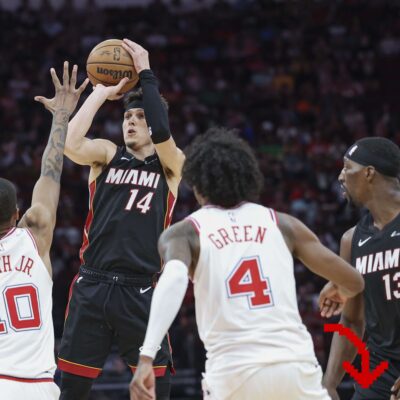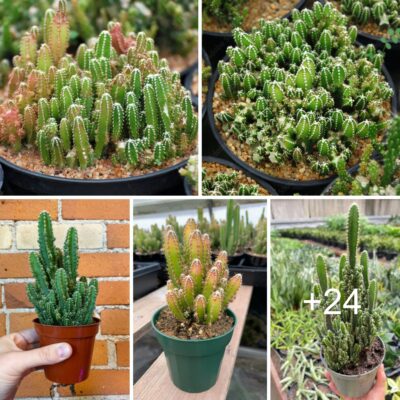We all want to grow a beautiful thriving garden. But it can get confusing when it comes to fertilizing our plants. But it shouldn’t be! By using high-quality organic fertilizers in your vegetable garden you are feeding your plants and improving your soil at the same time. I’ve put together a list of tried-and-true natural fertilizers to incorporate into your soil feeding routine. This is by no means an exhaustive list, and many of these fertilizers work well together.
1. Compost
It should be no surprise that compost is at the top of our list for natural fertilizers. Using decomposing organic material to return nutrients to the soil is as old as farming itself. When it comes to amending the soil, compost really is the complete package.
Compost is rich in all three of the most important nutrients for healthy plants – nitrogen, phosphorus and potassium. Adding compost to your soil every growing season does so much more than replenishing these key nutrients; it also helps maintain a healthy soil pH, helps soil retain moisture, and improves the overall condition of the soil.
If you’re new to organic gardening, I highly recommend beginning your journey by adding compost to your soil, whether you are using your existing soil or using a premade mix.
While it’s easy enough to purchase compost, it’s even better to make your own.

2. Manure
Animal waste from herbivores that has been decomposed into a soil like substance. Manure works best when mixed well into the soil where you will be planting your garden.
“Fresh” manure can be too hot for plants and may burn them, so it’s best to use composted or aged manure. If you’re using fresh manure, just be sure to add it in the fall and let it sit all winter. (Don’t apply most fresh manures to growing plants)
- Chicken Manure: Highest in nitrogen, but also one of the “hotter” options. Definitely let it compost and age well before applying.
- Horse Manure: Easy to find, but may contain the most weed seeds (although if the compost pile reaches a high enough temperature, this can reduce the weed seeds). We use a lot of composted horse manure in our garden since we have a few horses hanging around the barnyard, and let me tell ya. They poop. A LOT.
- Cow Manure: A great all-purpose manure that doesn’t burn plants as easily, due to a lower nitrogen content. Generally less weed seeds than horse manure.
- Goat/Sheep Manure: A drier manure that is less smelly and gentle to plants (won’t burn as easily). The little pellets make it easy to apply, too.
- Rabbit Manure: This is considered a “cold” manure, so you can add it directly to plants, with no worry of it burning plants. Just grab some of the “pellets” and sprinkle away! They will disintegrate slowly over time and release their nutrients into the soil as they break down.

Important Note: If you are using horse, cattle, goat, or sheep manure, be sure to ONLY use manure from animals who have NOT been grazing or eating hay from fields sprayed with herbicides. There are several types of herbicides that can survive an animals gastrointestinal tract and come through the manure to wreak havoc on your gardens.
3. Bone Meal
Bone meal is cooked or smoked bones that are ground into a granular or powder form. It’s great source of phosphorus for the vegetable garden, and can typically be found at your local garden/feed store, or purchased online. You’ll find that using bone meal in your garden will help your plants grow healthy root systems and help them flower and fruit.

4. Blood Meal
Blood meal is a powder made from dried animal blood, that is used when high amounts of nitrogen are needed. It can be applied in powder form or dissolved in water and used as a spray. This form of fertilizer works well for green leafy plants.

5. Worm Castings
Worm Casting is just another word for worm manure. Worm castings that are sold as organic garden fertilizer is the worm manure that is created when and earthworm eats its way through compost. Worm castings are full of nutrients and should be added to soil or potting soil that is going to be used for gardening.

6. Guano
Guano or Bat Manure is a fertilizer that has been used to amend soil for centuries. Guano is collected from bats that feed on insects and fruits. It can be used to amend the soil or feed your plants directly.
Each of these fertilizers can be found at your garden centers or online. When you are searching for organic fertilizers, make sure you read the packages to be sure what you are buying is certified for organic gardening.

7. Fish Emulsion
This is a fertilizer that is used to give your garden an extra boost of nitrogen when needed. Fish Emulsion is a liquid concentrate fertilizer that is made from fish and fish parts. The liquid is diluted with water and then sprayed in the soil around your vegetable plants.
8. Seaweed Fertilizer
Seaweed is a term used for all different varieties of marine plants; these plants can be used as an organic fertilizer in your vegetable garden. Seaweed fertilizer can be used as mulch or sprayed in a liquid form. Seaweed fertilizer provides lower amounts of nutrients then other fertilizers but is less likely to leech into the soil as others.

9. Kelp Meal
Kelp is a specific kind of seaweed that can be used in your vegetable garden as an organic fertilizer. The kelp that is collected for fertilizer is dried and then ground down into granules called Kelp Meal.
Kelp Meal can be added to the soil directly or mixed with water to create a liquid version. This specific type of seaweed is used to amend the soil and promote disease free plant growth.

10. Banana Peel Fertilizer
While you could toss your banana peels directly in your compost bin, you might want to toss them in a jar with some water instead.
Homemade banana peel fertilizer gives you a potassium-rich liquid feed containing important trace elements – calcium, manganese, sulfur, and magnesium. These are all nutrients that control vital systems in a plant’s life cycle.
Again, use it for your garden and your houseplants as a foliar spray or a liquid fertilizer.
The great thing about this particular fertilizer is that you don’t have to have a compost pile to make it. You just need to be someone who eats bananas.

Thank you for spending time to see this article of Ideassimple about 10 Best Organic Fertilizeres To Grow Healthy, Thriving Plants. Please give us a like, comment or share if you find the article good and meaningful. Have a good day!











